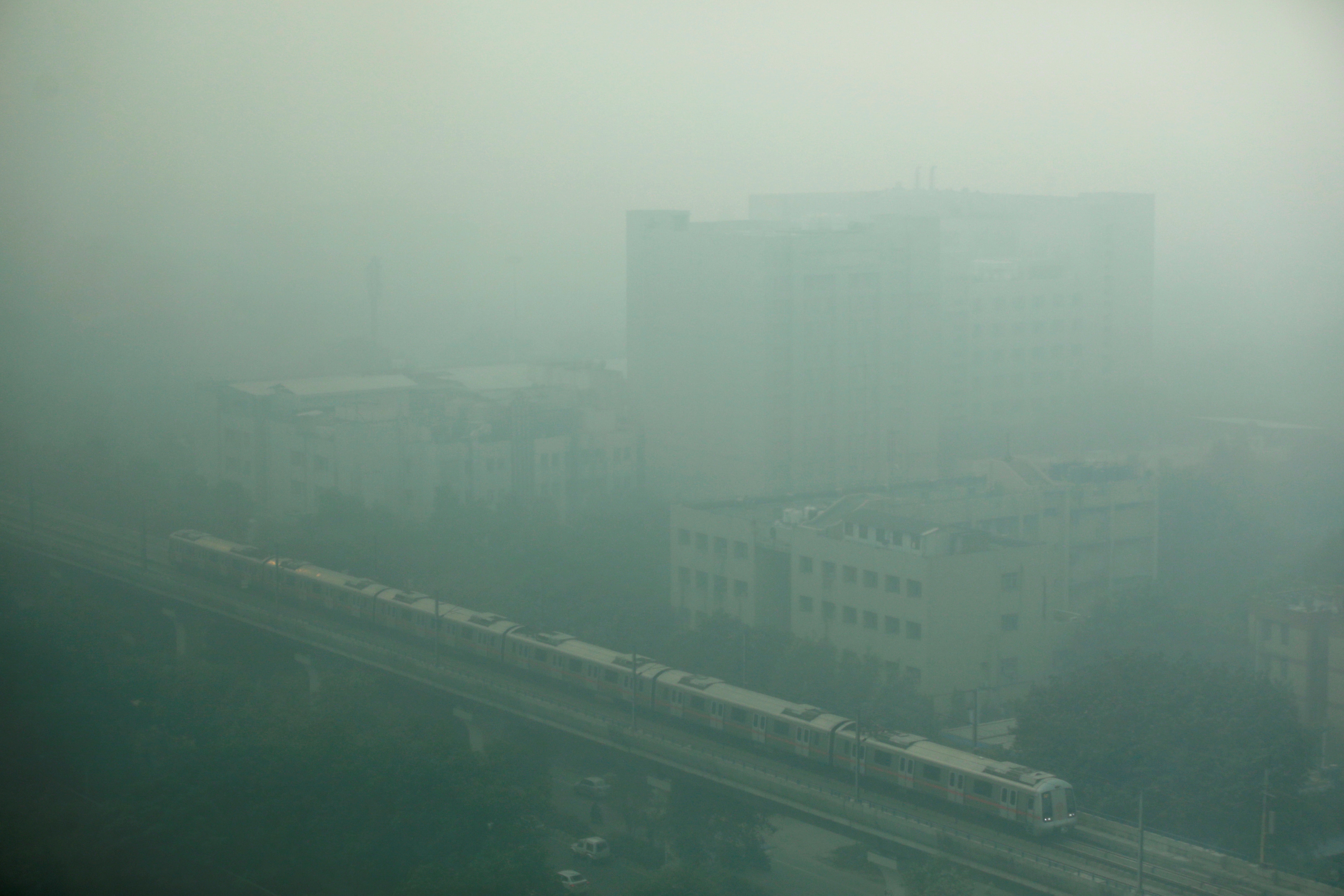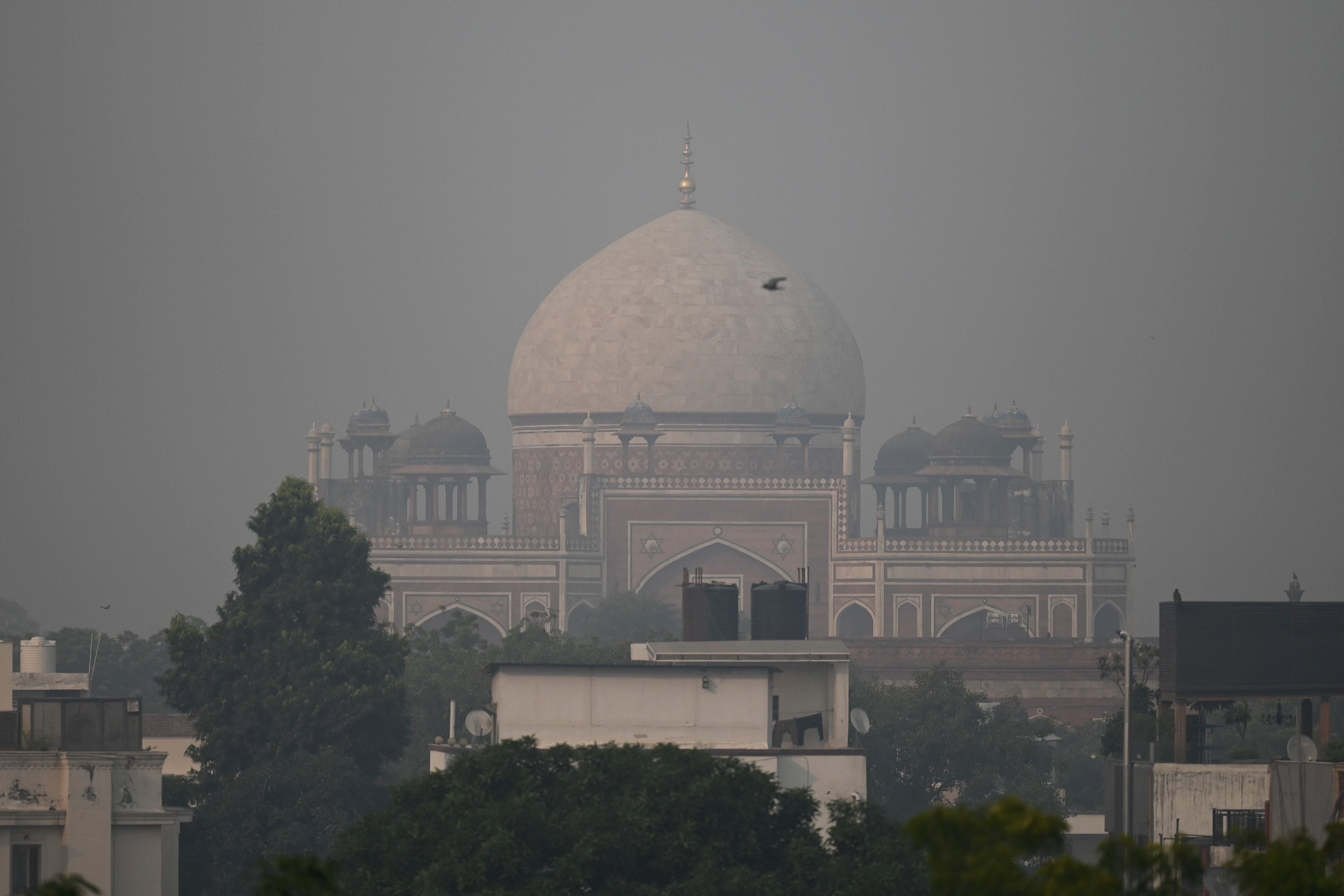
Toxic air pollution levels have once again forced millions of people in Delhi indoors as the administration imposed lockdown-like restrictions, with schools set to be closed for a week and many workers told to stay home.
With AQI ratings dipping to “hazardous” levels consistently since Diwali on 4 November, Delhi’s government said the school closures would protect the growing, vulnerable lungs of children from the deadly smog.
Officials have also banned all construction activities in the city, noting that the dust from such projects comprises a major part of Delhi’s annual winter pollution problem.
All government offices have been told to make their officials work from home for this week, while private offices have been asked to consider shifting to working from home.
This is aimed at bringing Delhi’s vehicular emissions down — another major contributor to air pollution — by reducing the number of cars plying the national capital’s streets.

Judges of the Supreme Court, which is housed in the heart of Delhi, questioned Delhi’s senior counsel on Saturday and asked him why children are being exposed to simultaneous pollution, pandemic and Dengue crises in the city.
“You have opened all schools and now you are exposing little children and their lungs to the hazardous air at 7 in the morning. This is not the central government’s but your jurisdiction.”
It comes as the latest blow to the learning schedule of children in India’s national capital, which has been battered by the Covid-19 pandemic and is slowly recovering from a brutal second wave. Delhi had only just opened its schools with much fervour earlier this month.
On Saturday the Supreme Court issued a sharp rebuke to India’s federal administration and northern states’ representatives for mismanagement and inaction on the ongoing air crisis.
“Take immediate control measures. Tell us how immediately we can reduce AQI by 200 points. If required, think of a two day lockdown or something... How will people live?” the top judge in the country told India’s solicitor general Tushar Mehta.
India’s most senior judge - Chief Justice of India NV Ramana - told the lawyers: "You see how bad the situation is… We have been forced to wear masks at home also, the situation is very serious.”
An emergency meeting was called on Saturday evening after which the restrictions were announced by Delhi’s chief minister Arvind Kejriwal.

While the national capital - the world’s most polluted - will not be imposing a complete lockdown as of now, Mr Kejriwal said the administration is considering a plan for a bigger lockdown induced by rising pollution levels, and said a proposal will be shared shortly.
Delhi has been battling at least “severe” air quality for nearly 10 days now after large-scale violations of a fireworks ban during the Diwali festival celebrations, as well as a sudden spike in instances of crop burning in neighbouring states.

India’s federal administration and northern states like Delhi, Punjab and Haryana have been given 48 hours to submit their responses on how pollution levels can be reduced by 200 points and will present them to the Supreme Court on Monday.







